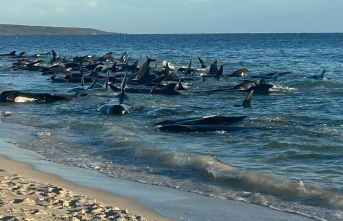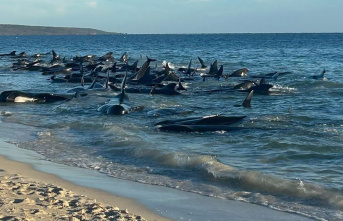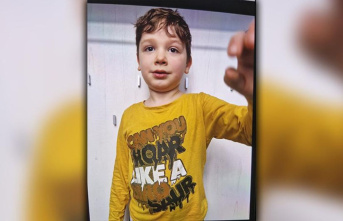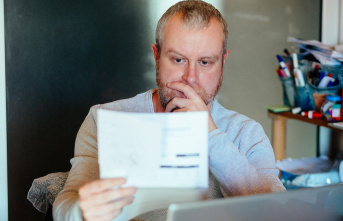In recent times, the essay in the segment of children's and youth literature is giving some interesting results. Some may border on self-help, but they deal with topics like menstruation or consent in such a natural and straightforward way that we can only applaud them and congratulate ourselves on their appearance. Social networks as a theme are also beginning to be seen in this current of writings with a critical spirit that seek the reflection of the youngest. And the economy? Big question. Here is a selection of the latest that has come to the newsroom.
Yuval Noah Harari said in his Sapiens that one of the reasons why humanity has advanced over the centuries has been because of its curious spirit. Surely he explained it much better but in short that was one of the ideas. But curiosity is not something that is activated with a button. If it is not stimulated, it does little for itself. This is how the philosopher José Carlos Ruiz explains it to us in this Cocola and the amazing glasses, an incursion by the author into the children's book where a girl, Cocola, at her grandfather's house, learns to look at life through wonderful glasses that Grandpa gives. Are glasses magical?
All children are curious by nature, but we must also know how to be amazed by everyday life as a preliminary step to questioning, asking questions, critical thinking. And this book tells us about it (also in Catalan).
Sense of humor and to a certain point of hooliganism. It is the tone that the author Valentí Coronel has adopted to convey to young people complex issues that concern them through an informative collection in Spanish and Catalan baptized with the name of Your divergent opinion, by Algar/Bromera. The last title came out in light of the Covid-19 pandemic with the recurring title of Viruses, bacteria and other nanobugs. A casual essay on the power of viruses and bacteria and their bad reputation, as well as a review of all those that have gained a certain fame such as Helicobacter pylori, herpes, mad cow disease or Covid itself.
Full of cross-outs and highlighted keywords (too obvious for our liking), Coronel tries to playfully approach a really complicated scientific topic, with historical touches that put the matter in context. It is noted that Roal Dahl has made a dent in the author. Also in Catalan.
They have been running for a while but that does not stop them from being mentionable and applauded. At the end of 2019, the publisher Akiara Books launched a new collection that, under the name of 'The force of the word', collects in a very interesting format, some inspiring speeches given by people such as Steve Jobs, co-founder of Apple, the activist and Kenyan politician Wangari Maathai or the former president of Uruguay, José Mujica.
The entire collection, which is now in its eighth title, is quite a statement of intent both in terms of its content and its format. On recycled paper, kraft cardboard for the covers and a bilingual edition, this collection brings together reflections on current issues that were expressed aloud during interventions by its protagonists. For example, from Jobs we are offered the speech he gave during the Stanford University graduation ceremony in 2005, where he gave some of the keys to his life and successes, or the speech Maathai gave when he picked up the Nobel Prize for the Peace.
The latest published titles refer to the plea in favor of conservation and animal life that the activist Jane Goodall launched in 2015 when she received the Catalunya International Prize, and that of the former slave Frederick Douglass, who was invited to speak before his fellow citizens on 4 July 1852, on the occasion of the celebration of Independence Day in the United States. And just like the previous works, with expert commentary at the end of each speech where the author is placed in context and the keys to those powerful and inspiring speeches are analyzed. Also bilingual Catalan-English.
Fake news spreads six times faster than real news. It's not us who say it, it's the playwright, researcher and activist Simona Levi, founder of Xnet, a network of activists and specialists in digital rights. She, together with the philologist and primary school teacher Marc Planas, has developed a practical guide on fake news and disinformation that emphasizes the need to obtain all the elements at our disposal in relation to a piece of news before giving our verdict, it is say spread it. Be it a piece of news itself, a rumor or a gossip, everything goes into this bag of fake news that social networks have exponentially boosted.
The book not only defines for young people what is meant by fake news, but also the typology, intentionality, the difference between opinion and information... all stuffed with current examples such as covid and vaccine deniers, or more ancient, such as the arrival of man on the Moon, that there are still those who question whether it was true or a set in a movie studio. An interesting first contact with the subject for the youngest, with all the intention of bringing out the critical spirit regarding some of the issues raised. Only in Catalan.
Selfie, pic, video, live, share, stories, insta, like, face, tiktok, snap... It would not be necessary to say anything else to discover what this Likeo, therefore I am, by Isable Meira, is about, if it were not for this magnificent essay on the internet is much more than a concatenation of new words and statistics. It is a constant challenge to our relationship with social networks and devices connected to the Internet and a permanent urge to question what we know and how we know it. Are all the answers on Google?
Obviously the data is tremendous. Just a few examples: 1.2 billion smartphones are sold in one year and nearly a thousand photos are posted on Instagram every second. 97% of adolescents between the ages of 15 and 17 use a mobile phone for 4.1 hours a day. . In 2020, the billions of devices connected to the Internet were responsible for 3.5% of greenhouse gas emissions, a percentage that may reach 14% in 2040. Are we aware of our contribution to global warming from our fingerprint?
He makes a brief history of journalism and analyzes likes as generators of dopamine and the creation of new professions such as influencers or new terminology: fomo, nomophobia, phantom vibration syndrome, phibbing... He talks about the hate speech promoted by social networks for the anonymity that exempt us from responsibilities, as well as from its serious consequences, with suicide as the most serious exponent. Also in Catalan.
It urges us to analyze our dependence on the Internet in our daily lives and the need to be aware of the impact that this need has on us. Because the cell phone is getting closer to our body, it is almost an extension of our hands, a device that, connected to the internet, allows us to caress and slap at a distance. How many times a day do we have the mobile in our hands? Make the account.
What moves us is the need for communication, curiosity, gossip, as Harari would say. It is what pushes us to relate to others and networks enhance that relationship can become with anyone. Hence, he also talks about knowledge, information, rumours, fake news, post-truth, profiles on social networks and what we disclose about ourselves without being aware of it. Let's do the test that Meira recommends and see how many applications we have on our mobile and how many have access to the location, the camera and the microphone. Scared? Read and become aware no matter how old you are.
Surely they know the MiFID, the banking suitability tests, knowing how to solve them is something else. Economic education is a fundamental pillar to function in a world of inflation, deflation and cryptocurrencies, that money that everyone talks about but that most of us do not understand. Money moves (partially) the world, especially our homes, and the sooner children learn to manage themselves, the sooner situations such as subprime situations will be avoided, for example.
Based on questions that we have all asked ourselves, from why do we have to work to why do we have to pay for things, Yoko Yagi, author of What is money? Economics lessons for curious children, it gives answers to questions such as the foreign exchange market, crypto assets or the global economy, but it stops at many very close issues such as how a bank works, the fundamentals for profitability and the risks of an investment. Because all that glitters is not gold. With a special chapter for taxes -do children pay taxes?-, something of first necessity today. These readings will surely make future adults know what they are talking about when they talk about money. They will be educated citizens, and that, speaking of economy, is priceless.
Knowing money, how it works, but also what to do and not do with it, from an economic but also a moral point of view is the goal of Money. How to Earn It, Save It, Spend It, and Donate It, by Rasmi Sirdeshpande. From the first exchanges in ancient times to digital banking, we find simple but very exact explanations, so much so that we have also learned by reading it.
Tips to start saving with the small weekly payments that take us to Warren Buffet, the master investor and from there to Muhammad Yunus, the banker of the poor, because something that we really like about this book, in addition to its didactic nature, is its emphasis on the golden calf, on how easily money can blind us. And money, as the author reminds us, is neither good nor bad in itself, it is only what we do with it, and that depends on us.
The author and illustrator Lucía Serrano has surrounded herself with psychologists specialized in childhood and sexual abuse to bring us this Your body is yours, a book to deal with sexuality with the little ones and discover where the limits are. The importance that the author places on the word No is remarkable, both from the side of the one who pronounces it and the one who listens to it. With warm, welcoming and very childish illustrations, Serrano deals with a subject of paramount importance in a simple and undramatic, but forceful way. The situations that occur are multiple, and for all of them it gives a possible way out. A highly recommended book.
The publisher Boldletters has just published a new title in the Chic @ cool series, dedicated to giving tools to teenagers and tweens with titles such as A cool guide for a girl like you, What a good vibe development or Shake emotions. Now it's all the turn to Same but different, dedicated above all to social skills and the adventure of growing up with family, friends and in love.
The psychologist Laura Morán and the illustrator Raquel Gu are in charge of providing young people with a series of social intelligence tools, which go through empathy (and some powerful keys to put it into practice), negotiation, apologies and the always so necessary assertiveness, which not only young people should put into practice.
The word no is also of paramount importance together with the analysis of the different types of family and the conflicts of loyalties that can arise in the event, for example, of separation or divorce. Falling in love, gender roles or friendship are part of the last part of this interactive book that challenges the young reader through questionnaires, scorecards or lists of all kinds. Also in Catalan.
Yumi Stynes and Dr. Melissa Kang use the system of their previous and celebrated book ¡Hello menstruation!, with comments from adolescents on the subject treated and personified with the illustrations of Jenny Latham, to talk about consent and all the nuances that exist between saying no and saying yes. An important part of the book, we could say the third final part, is dedicated to everything that has to do with sexual aspects, alcohol or social networks. With the generic 'For when the time comes', they talk about kisses, excitement or the right to demand pleasure.
But as we will see in this instructive book, consent is also about everyday life and simple things. Compromise is very easy if we do not give importance to the simple fact of, for example, leaving a shirt. But what happens when the person who asks you is an adult? Or a friend who thinks he has the right to fuck her every day just because you once said yes?
A practical and enlightening book that in a simple and unfussy way will help young people to understand the need for limits, to know how to find their own, to create a safety net for emergencies, to the need to act before thinking. .. A book, in short, that not only young people should read.
Rule No. 1 is not an instruction manual, nor rules, nor precepts. It is the first menstruation, that which is medically called menarche and that marks the end of puberty and the beginning of sexual maturity. A key moment in the life of Telma, who has just lowered her first period on her 11th birthday. A 'monstrosity' that she will record in a kind of diary that lasts for a year and whose entries will coincide with her menstrual cycle. A period diary where not only hormones circulate.
The author and illustrator Idoia Iribertegui uses the diary genre in this book to follow the experiences and feelings of Telma and her friend Clhoe in their first year of contact with menstruation and its derivatives, but at the same time combines it with a few brushstrokes of knowledge doctors pronounced by experts and opinions of young people who, like Telma and Clhoe, are in that period of their lives. These are short sections where "the doctor says", where a bit of history is made, where beliefs and curiosities are discussed and where many doubts are resolved. Whether the rule is cool or not is not important.
But what we really liked most about this book is that Iribertegui does not renounce literature in favor of the essay and that he uses this story to humorously launch some interesting proposals on which to reflect. For example, why, if most women have children late, do they not have their period after 20 or 30 years of age, and why does there still not exist a pill to eliminate menstrual bleeding that does not affect the reproductive system and its good health? functioning. There are also some proposals to achieve greater empathy from the male sex: that they also have a few days a month with problems such as peeing in their pants (it would force them to wear diapers), or that they have a very strong smell in their armpits some days a month. Also in Catalan.
Body shaming, diet culture, fatphobia, ideal of beauty, aesthetic regulations, bodyshaming, intuitive eating, bodypolicing... Many of those who will read these terms already know what the subject is about. Perhaps some have suffered or suffer it in their own flesh. If we know how bad and damaging it is for our integrity to be in a permanent bikini operation, why do we continue doing it?
This is one of the big questions raised by this interesting book that uses fiction to tell us the story of Sol, a teenager who has been invited by her best friend to an anniversary party to be held on the beach. Butt, legs and belly once again become her biggest enemies and in an attempt to lose 5 kilos in a month, Sol begins an operation that can only go from bad to worse. Until she raises her head, she looks around her and shares her fears and hatred of herself. A book full of truths, halfway between fiction and self-help that puts us in front of a mirror to challenge us and invite us to love ourselves a little more every day. Also in Catalan.
We don't know for sure if these books fit into the concept of epistemology or not, but surely by now you will have looked for their meaning. If so, welcome to the path of critical thinking, which begins with curiosity. And if not, then you have no choice.
4












